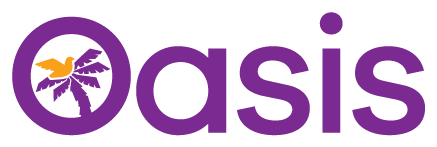At Oasis we don’t receive any statutory funding for our work with children and young people – and yet we know that this work is essential if we are to reduce the harm caused to individuals, to families and to society by domestic abuse.
Sam* was referred in July 2015 by Early Help and Preventative Services. He had been witness and victim to domestic abuse between his mother and father until he was seven years old when his parents separated. Sam has contact with his father and witnesses his anger and attempts to continue to control the family. Sam struggles with his anger and the referral states that Sam’s mother was worried he would hurt her.
We started work with Sam in October 2015 and he was able to identify that he struggled to manage his anger at home and school. Using ABLE on a scale of 0-5 (5 being the worst) Sam rated his anger at 5, stating that he would regularly become angry and was unable to control it which would result with him punching the refrigerator and intimidating his mother. Sam completed 12 sessions and a number of these focused on anger. Sam felt he carried anger around with him and it never went away. He drew a volcano to show this and feels that on a scale of 1-10 with 10 being an eruption of anger he generally sits with anger at about 4 to 5.

Sam would reflect on childhood memories which make him feel angry. We explored this and his feelings that he has towards certain memories. Sam described resentment and lack of respect for his mother as he originally felt she caused his parents’ relationship to end. Sam identified his body’s physical responses to when he starts to feel angry. We identified strategies that Sam could use to manage these.
Following this, we looked at support networks. Sam gave me his consent to speak to the pupil support staff to look at strategies they could use to support Sam within the school. This resulted in Sam being issued an ‘exit card’ so that when he felt himself becoming angry he could leave the classroom and deal with his emotions effectively. Sam and the teacher regularly reviewed this. Sam completed ABLE again at the end of our sessions and scored a 2 on the scale. He engaged well during our sessions and made significant progress. Sam felt that his behaviour had improved. It was also mentioned by student support how Sam’s behaviour was better managed in school.
*Sam’s name has been changed to protect his identity
Get support
Call our helpline on 0800 917 9948 (Monday, Tuesday, Wednesday 09:30–11:30am, 12:30–2:30pm
Thursday and Friday 09:30–11:30am, except bank holidays) or email [email protected] (if it’s safe to do so)
If you or your family are in immediate danger please call the police on 999 (if you can’t speak, cough or tap the handset then press 55 on your phone – the police will know it’s an emergency)
In a non-emergency situation, you can call Kent Police on 101.
*All images used on this website are representative. All names are anonymised for people’s safety.

